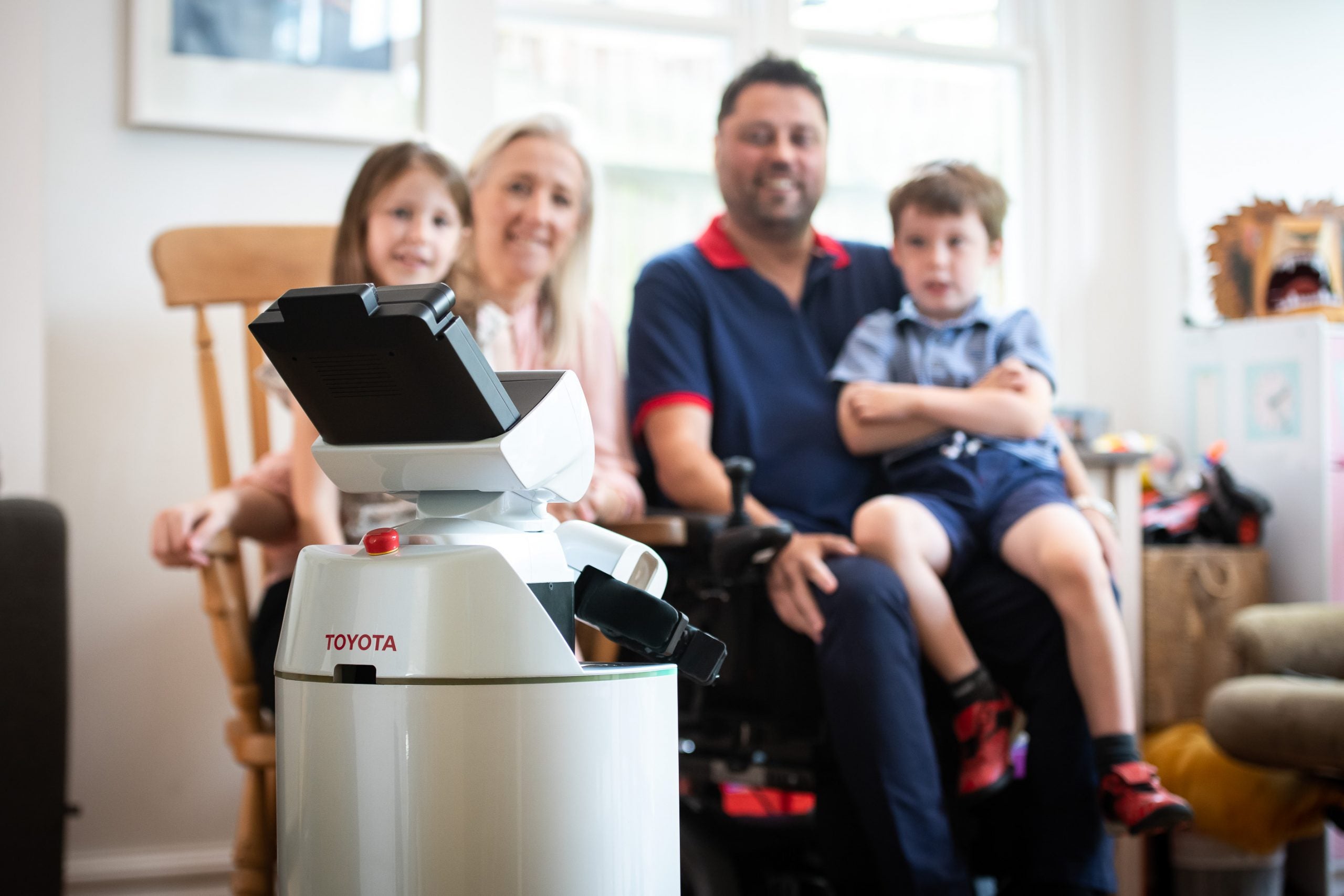Toyota Human Support Robot takes part in first UK home trial
The robotic assistant prototype spent time at the home of Anthony Walsh, who lived with motor neurone disease.

Your support helps us to tell the story
From reproductive rights to climate change to Big Tech, The Independent is on the ground when the story is developing. Whether it's investigating the financials of Elon Musk's pro-Trump PAC or producing our latest documentary, 'The A Word', which shines a light on the American women fighting for reproductive rights, we know how important it is to parse out the facts from the messaging.
At such a critical moment in US history, we need reporters on the ground. Your donation allows us to keep sending journalists to speak to both sides of the story.
The Independent is trusted by Americans across the entire political spectrum. And unlike many other quality news outlets, we choose not to lock Americans out of our reporting and analysis with paywalls. We believe quality journalism should be available to everyone, paid for by those who can afford it.
Your support makes all the difference.One of the first home trials of a robot assistant to aid someone with mobility issues has been carried out by Toyota.
The firm’s Human Support Robot (HSR) – which can fetch objects, open doors and interact with humans – was used at the home of Anthony Walsh, who lived with motor neurone disease (MND).
Mr Walsh died shortly after the trial, but after discussions with his family, details of the trial and a short film about it have been released to respect his wish to raise awareness of the disease and the work of charity the MND Association.
The HSR was used as a service robot around the home, and thanks to a folding arm and a range of sensors and cameras can perform practical tasks for people with mobility issues.
During its time at the Walsh household in Southgate, north London it helped bring items from the fridge, pass the TV remote and even sang in Mr Walsh’s voice, which had been recorded in advance.
Speaking at the time of the home trial, he said: “We’re just getting the first taste of what the future might hold and what technology is out there that might be manipulated to help people in my condition, particularly those who maybe don’t have the same support network as I do.
“I think there could be a place where this robot could be there to help people in different ways with their day-to-day life.
“It gives you back a little bit of your independence, albeit you’re still relying on something else.
“This robot would actually free up time for other people to not always be at your beck and call and to have some of their own time back. It can relieve a lot of stress in the family situation.”
The trial was the result of work between Toyota Motor Europe, Toyota GB, the MND Association and King’s College London.
Currently, the robot is manually controlled, but robotics experts at King’s College London have said they hope to make it autonomous in the future.
Oya Celiktutan, a lecturer in robotics at the department of engineering at King’s, said the researchers were also working on making the robot more able to learn from the humans around it.
“One of the problems we are focusing on is how to make robots learn continuously without forgetting their past knowledge,” she said.
“For instance, how we can make the HSR robot learn which is their user’s favourite mug and then bring their tea in it.
“We are also working on algorithms to make the robot learn new tasks simply by watching humans, such as potentially preparing and giving medication.”
Mark Van Loock, technology manager at Toyota Motor Europe said the trial had provided “useful insights into how this type of robot could help people in the future”.